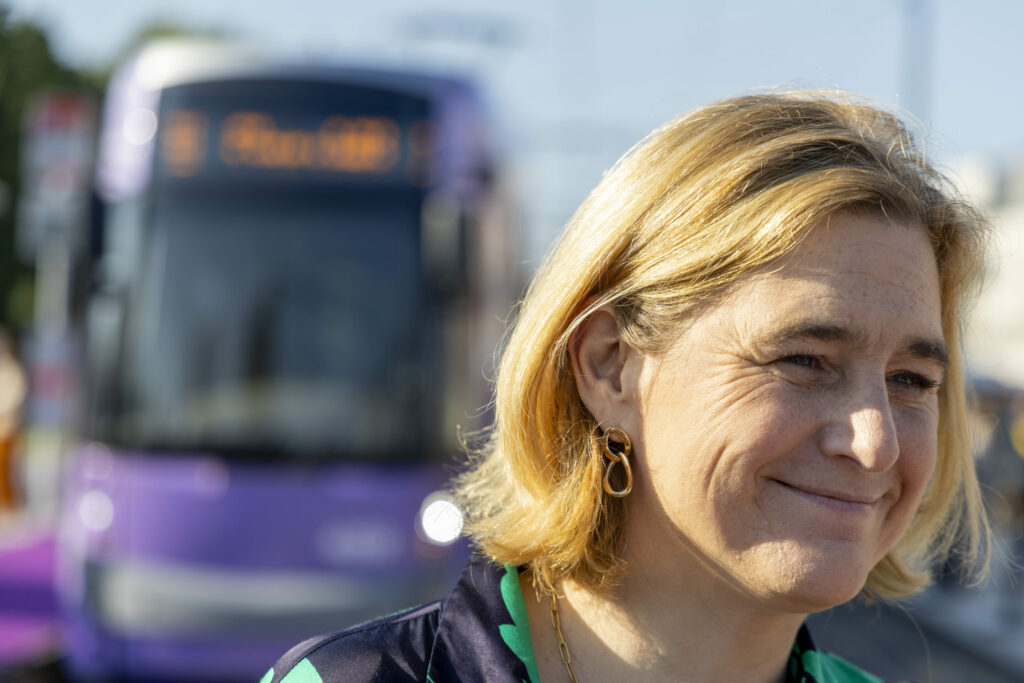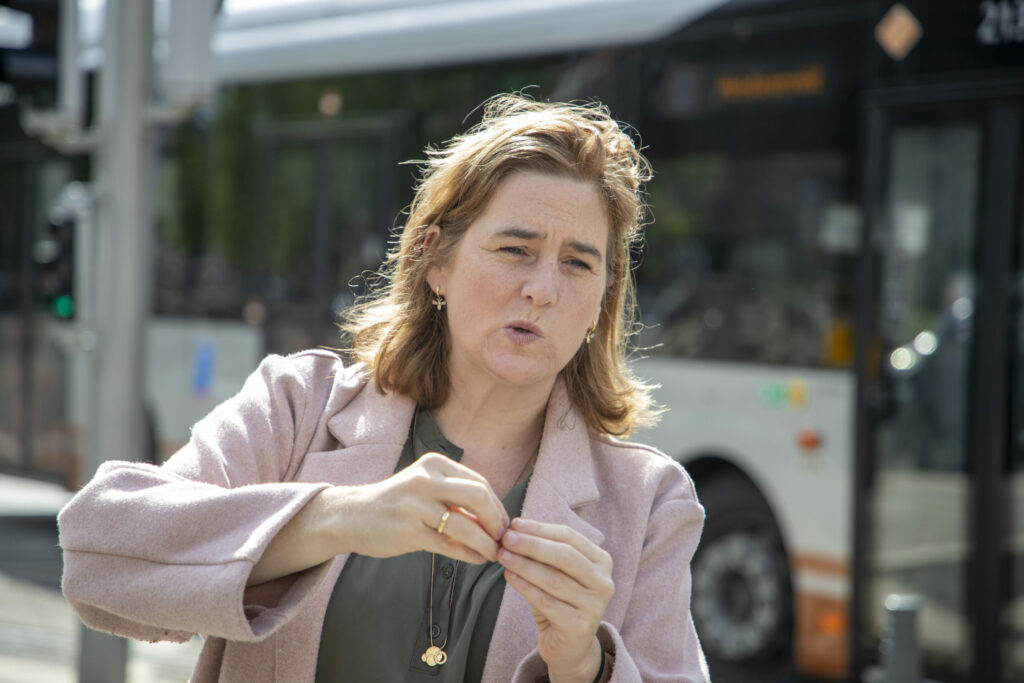As part of the negotiations on the Dutch-speaking side of the Brussels Government, formator Elke Van den Brandt (Groen) presented the other parties with a striking "starting note" to form the basis for talks.
The Dutch-speaking negotiators for Flemish greens Groen, rightwing N-VA, liberal Open VLD and socialist Vooruit took steps in the right direction after a three-hour long "constructive conversation" on Monday evening and are aiming to finalise the talks on the Dutch-speaking side this week, The Brussels Times has learnt.
Once they have concluded, the negotiations for a new regional coalition with the French-speaking majority (consisting of liberal MR, socialist PS and centrist Les Engagés) can actually start.
First, however, the Dutch-speaking parties are negotiating this week based on a "starting note" of proposals for the coalition agreement proposed by Van den Brandt last week, to ensure all partners are on the same page.
Fixing the budget
The document, which some said has "surprisingly" strong institutional overtones, was first seen by La Libre, and its contents were confirmed to The Brussels Times.
The first point in the note is devoted to creating a "sustainable budget" and looking at ways to get the Brussels financial situation – with a high level of debt and an annual deficit of around 20% – "out of dangerous waters." To make savings, the aim is to make the regional institutions "more efficient and coherent" through an in-depth reform.
Secondly, the note addressed the need to safeguard open, green spaces such as the Josaphat site in Schaerbeek or Neerpede in Anderlecht. The proposal states proposed that "the net surface area of green spaces may not be reduced." This might become difficult to find an agreement on, particularly as the proposal will likely meet resistance from the French-speaking socialists.

Brussels Mobility Minister Elke Van den Brandt. Credit: Belga/Nicolas Maeterlinck
In terms of mobility, Van den Brandt put the proposed "kilometre tax" back on the table. "Traffic tax is changing from a tax on the possession (of a vehicle) to a tax on its use." During the previous legislature, the SmartMove project designed to reorganise car taxation put forward by Sven Gatz (Open VLD), was blocked by PS. Now, MR is also opposed to the plan.
Measures should also be taken "to discourage the use and purchase of very heavy SUVs" as part of Brussels road safety policy, the note said.
For housing, the includes a number of proposals aimed at keeping "housing accessible to the middle class," such as rent controls, allowances and social assistance.
Employment-wise, the proposals recommend making greater efforts on training and education but also emphasise that more should be done for "the recognition of foreign diplomas, particularly those giving access to occupations for which there is a structural shortage of manpower."
In terms of language use, the note recommends "efforts to strengthen bilingualism in public services and the health sector in Brussels."
Institutional reforms
The second part of the note deals with institutional reforms, which it says are "necessary because complexity has reached its peak in Brussels, and citizens no longer know which authority is responsible for what." Therefore, simplification, centralisation and greater efficiency are needed.
To achieve this, Van den Brandt proposes a merger of Brussels' 19 municipalities, the social welfare centres (CPAS) and six police zones – while maintaining a policy close to the people and the specificity of the different districts.
Instead of municipalities, local districts would take on tasks "very close to the residents, such as sport, culture, communication and work with young people and senior citizens." For administrative work, a local counter of the population department would remain, but everyone would be able to go to the counter of their choice, anywhere in the Capital Region.
Additionally, the note recommends "a coherent and unambiguous social policy by merging the 19 CPASs" – a topic that has become all the more pressing following the recent allegations of social benefits fraud in the Anderlecht CPAS.

From left to right: MR's David Leisterh, Les Engagés' Christophe De Beukelaer and PS' Ahmed Laaouej. Credit: Belga/James Arthur Gekiere
For a stricter security policy, Brussels police zones should merge and would be headed by one single chief of police and one single politician. "This is necessary to organise the security services more effectively and decisively, in a context of complex security phenomena that go far beyond the boundaries of the police zones."
Importantly, these proposals are part of a "starting note" that was presented last week. In the meantime however, some amendments have been adapted. It is currently unclear on which points the Dutch-speaking parties are (still) in agreement.
The contents of this note are still the subject of discussions between the Dutch-speaking partners this week before they will be on the negotiating table with the French-speaking partners. In any case, it seems highly unlikely that they will accept this note in full.

